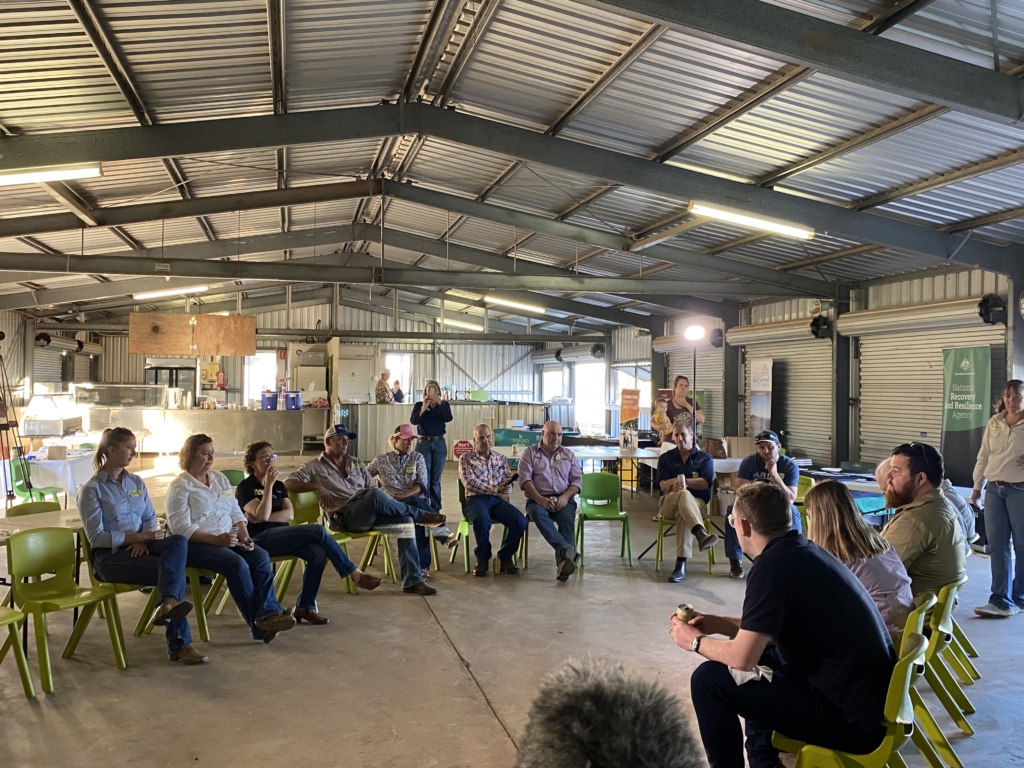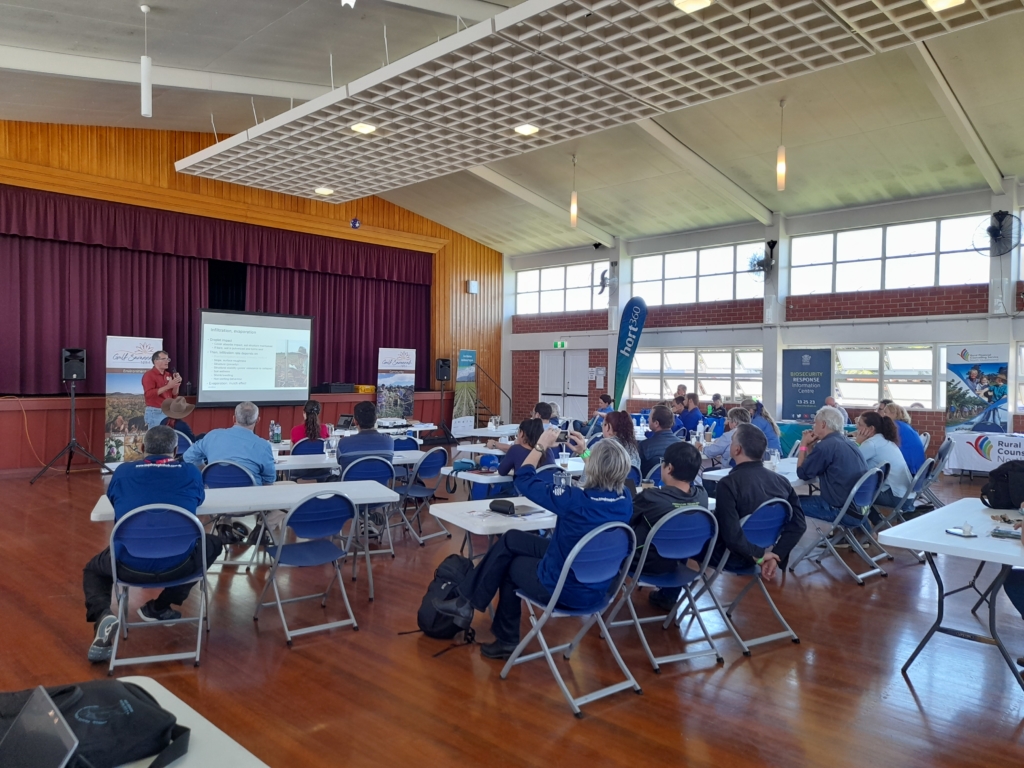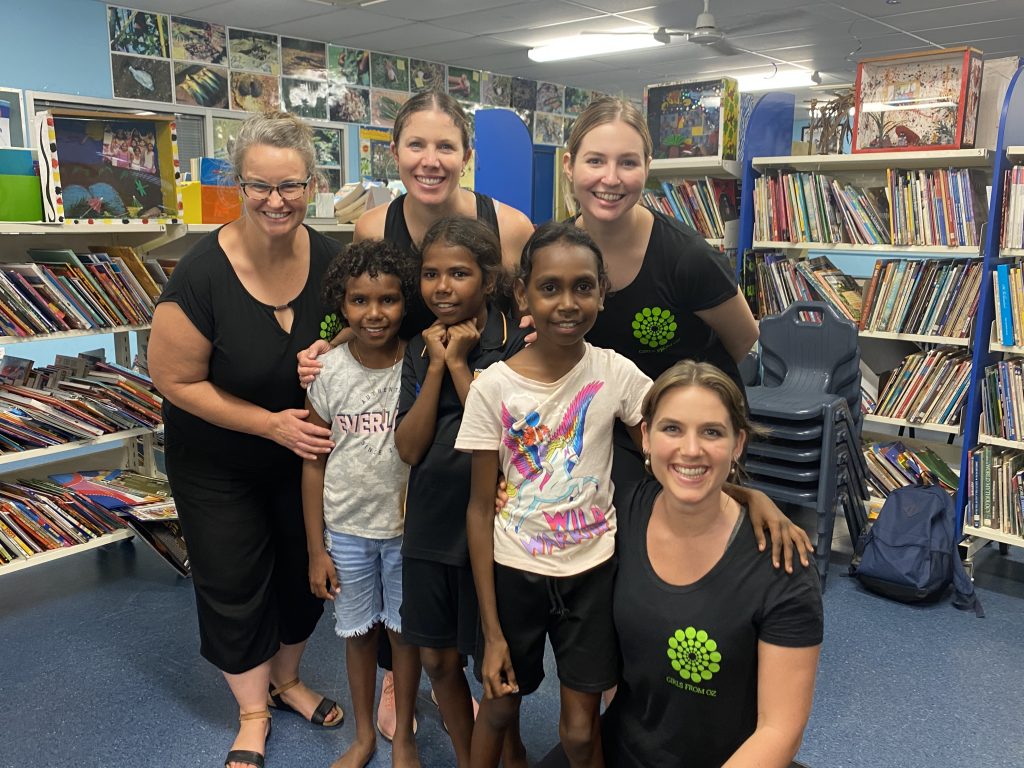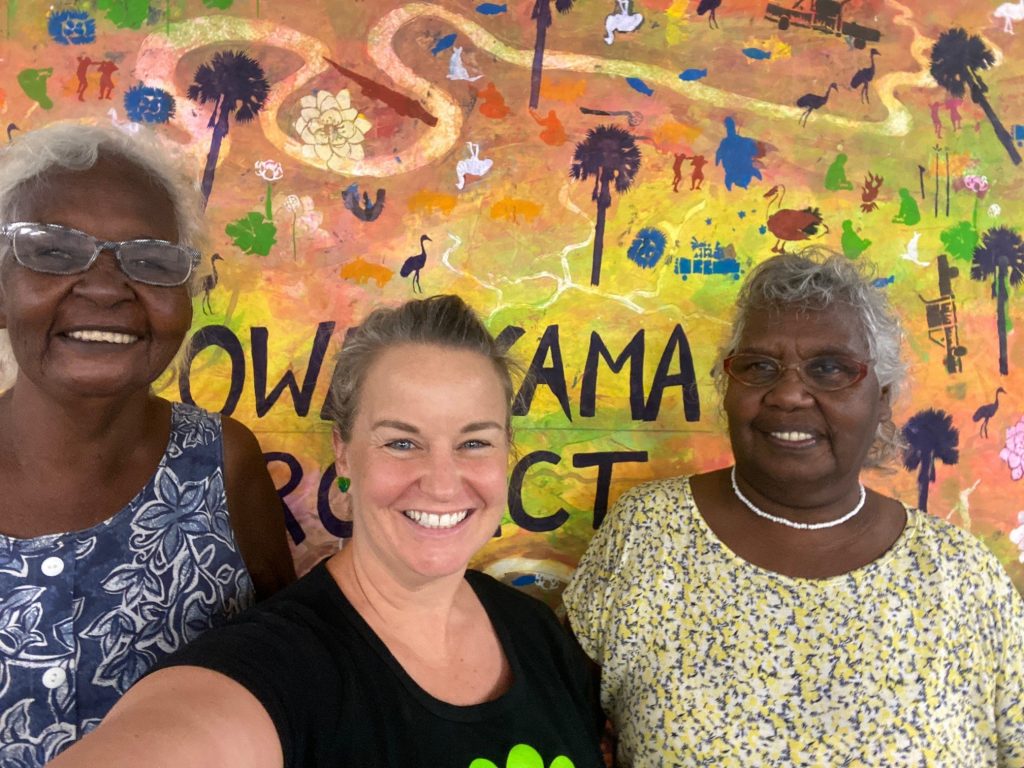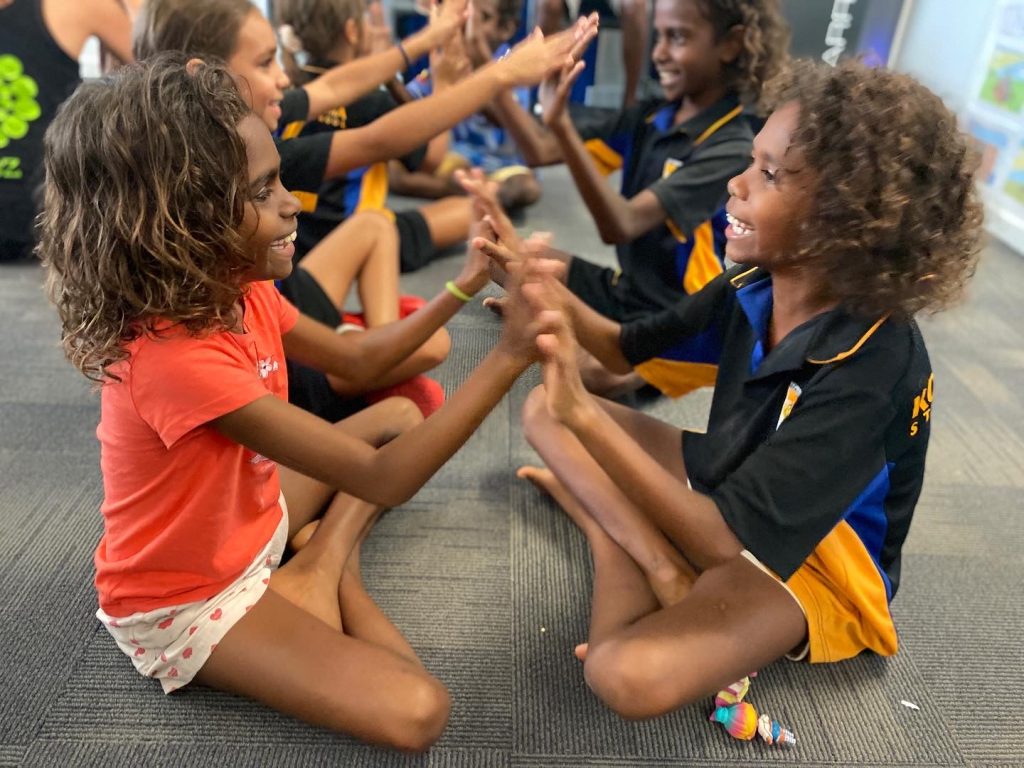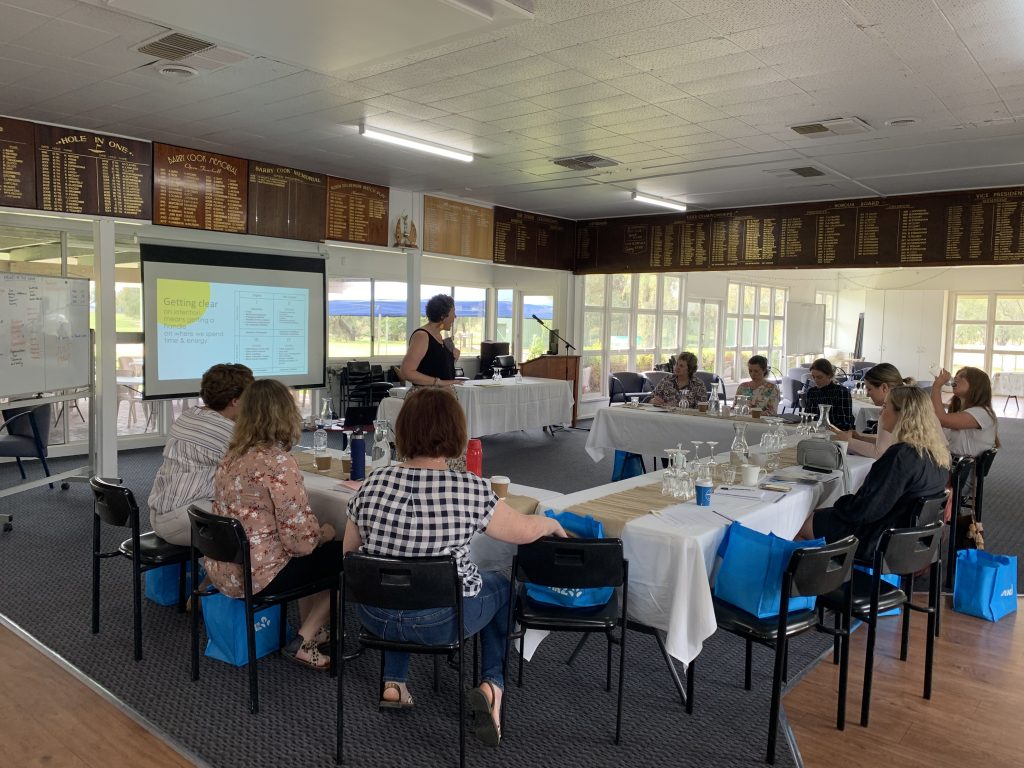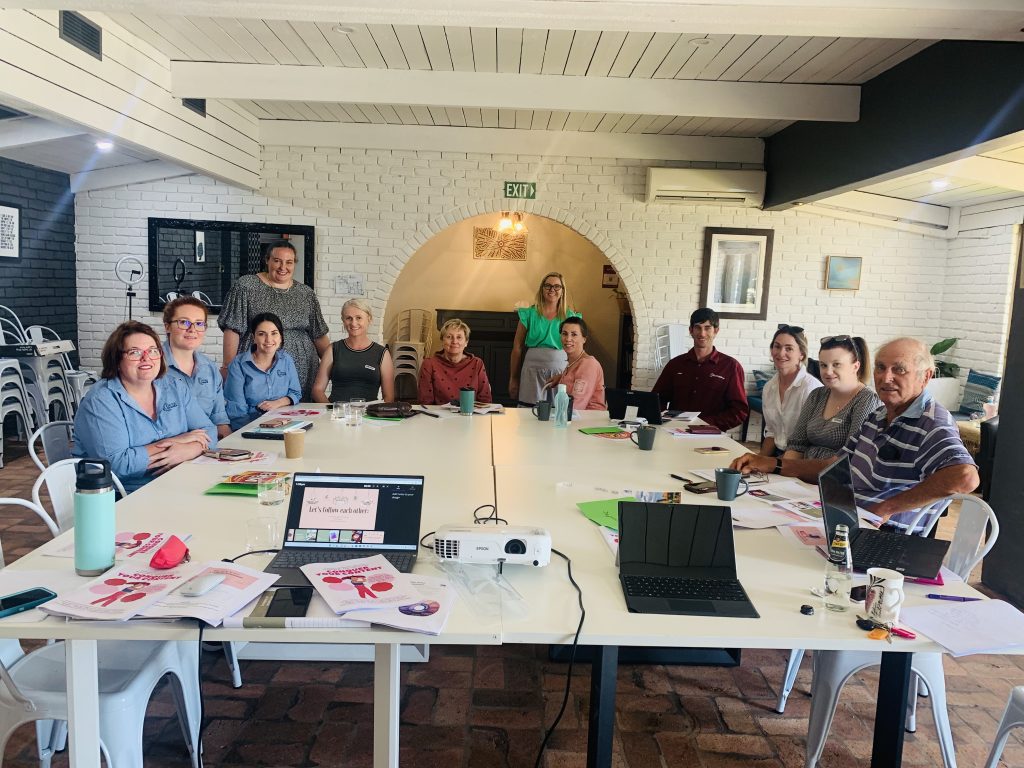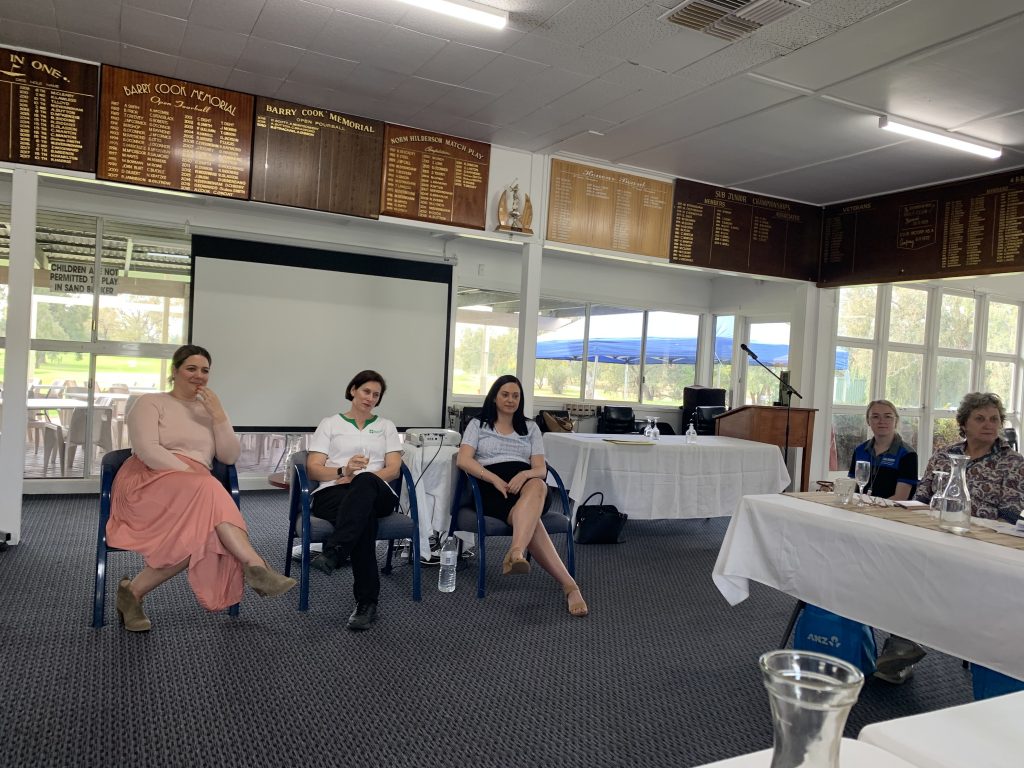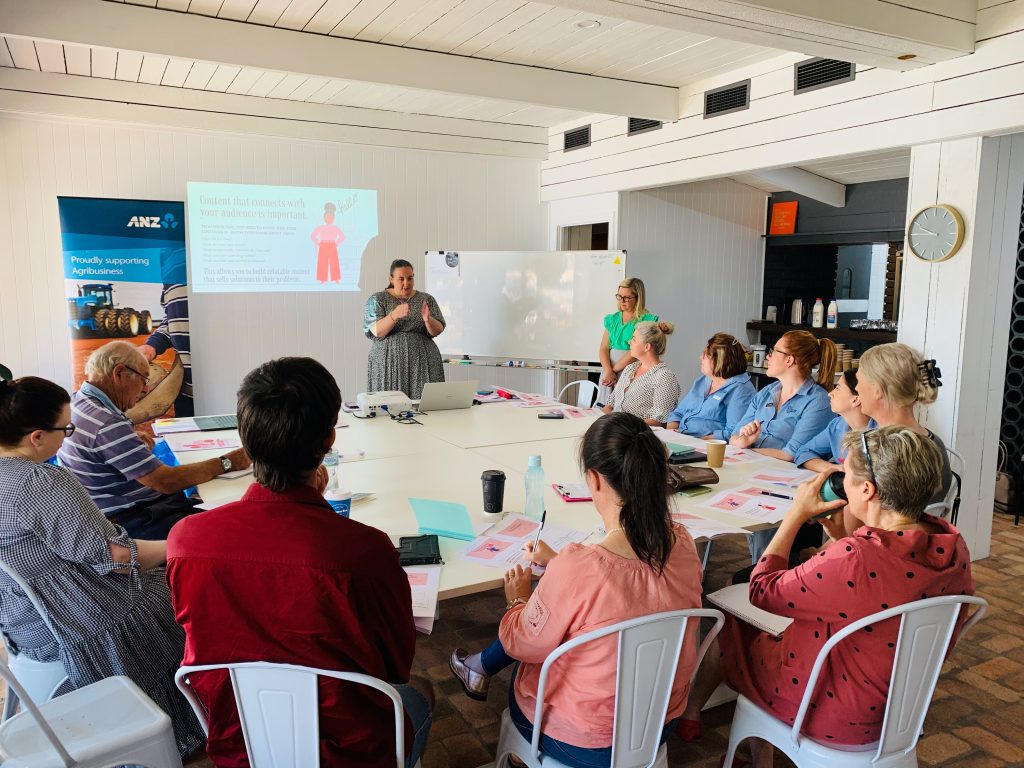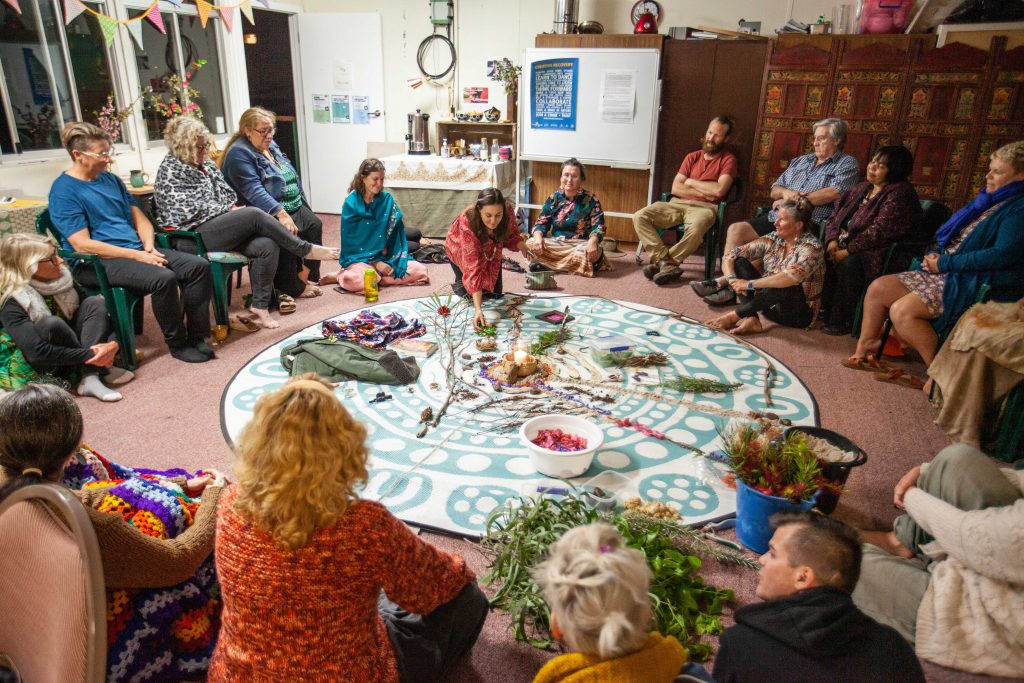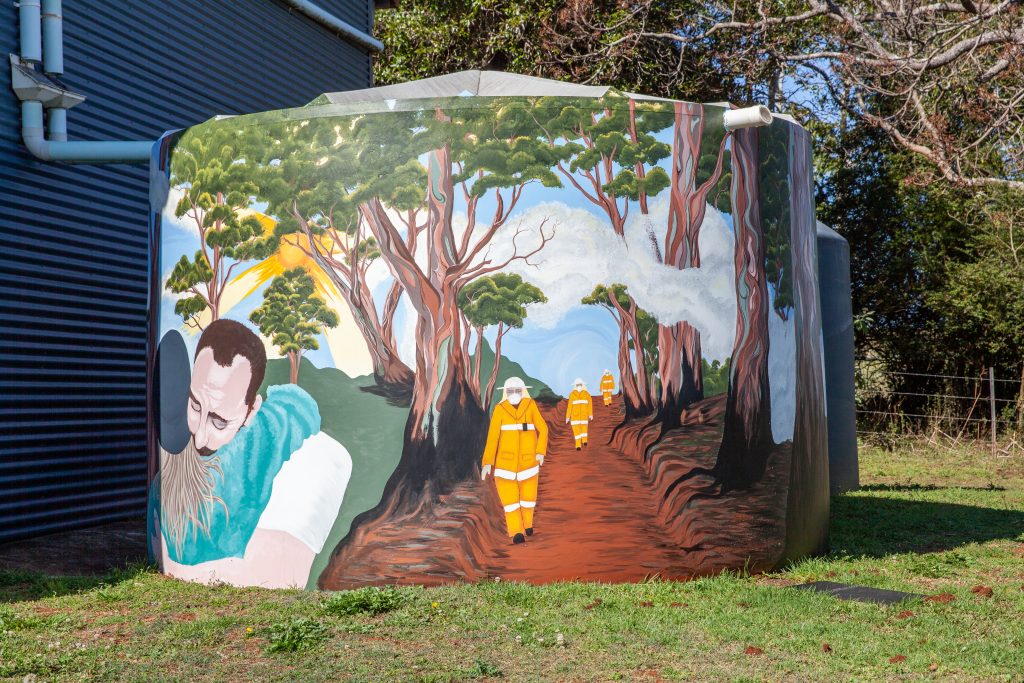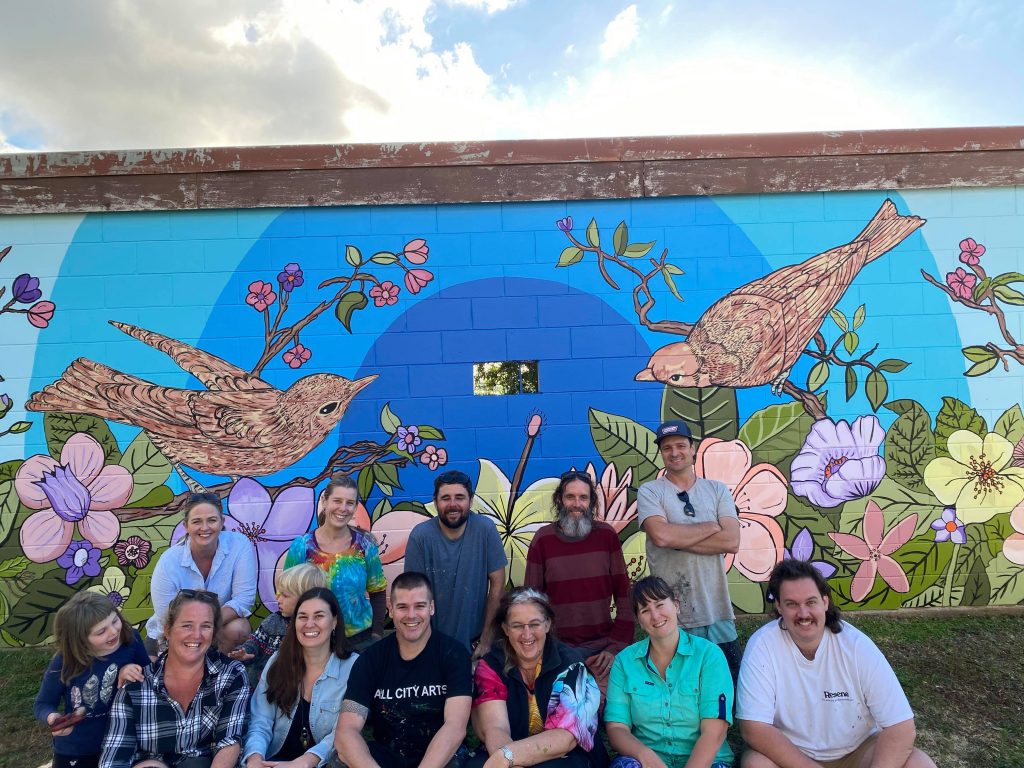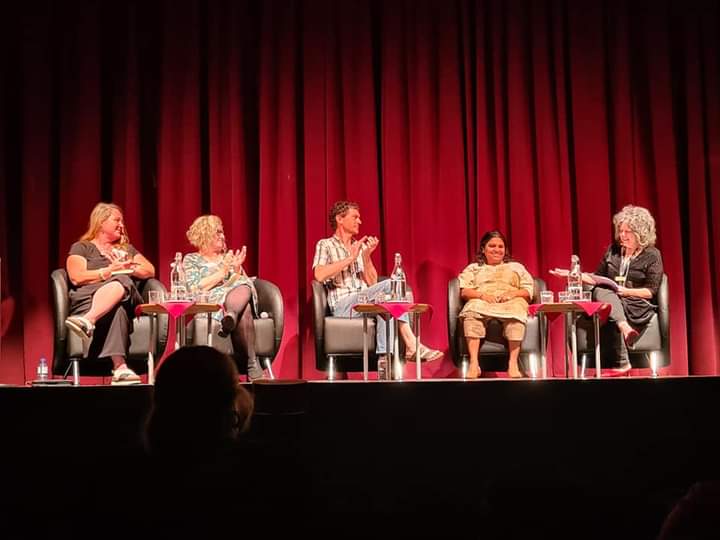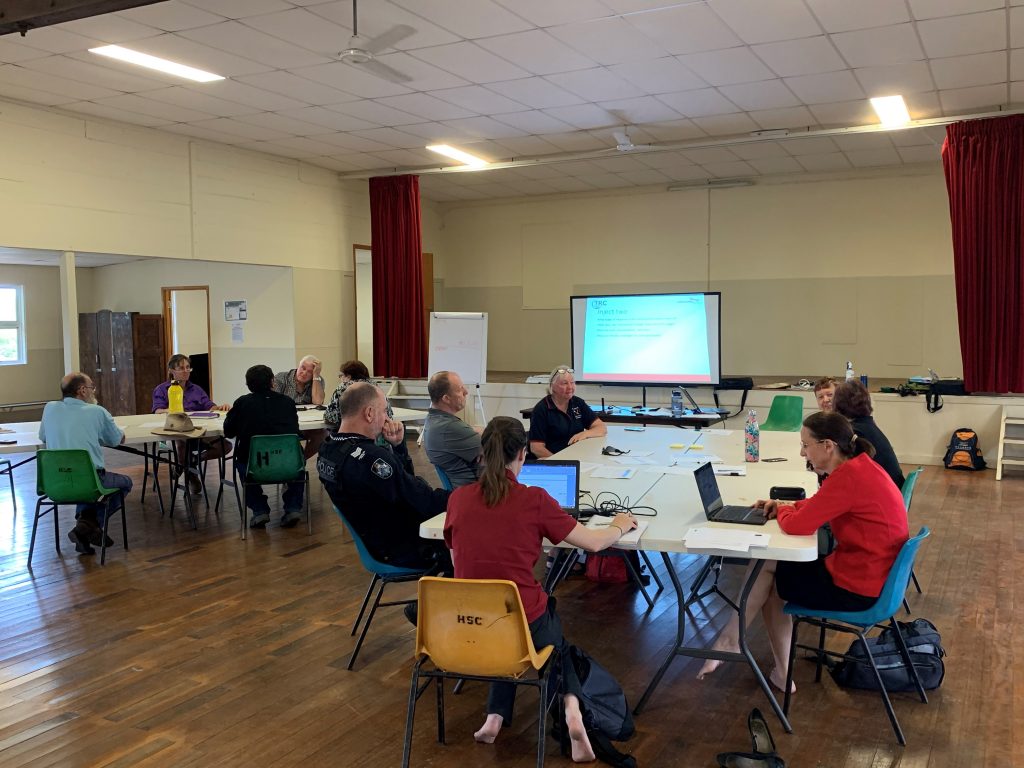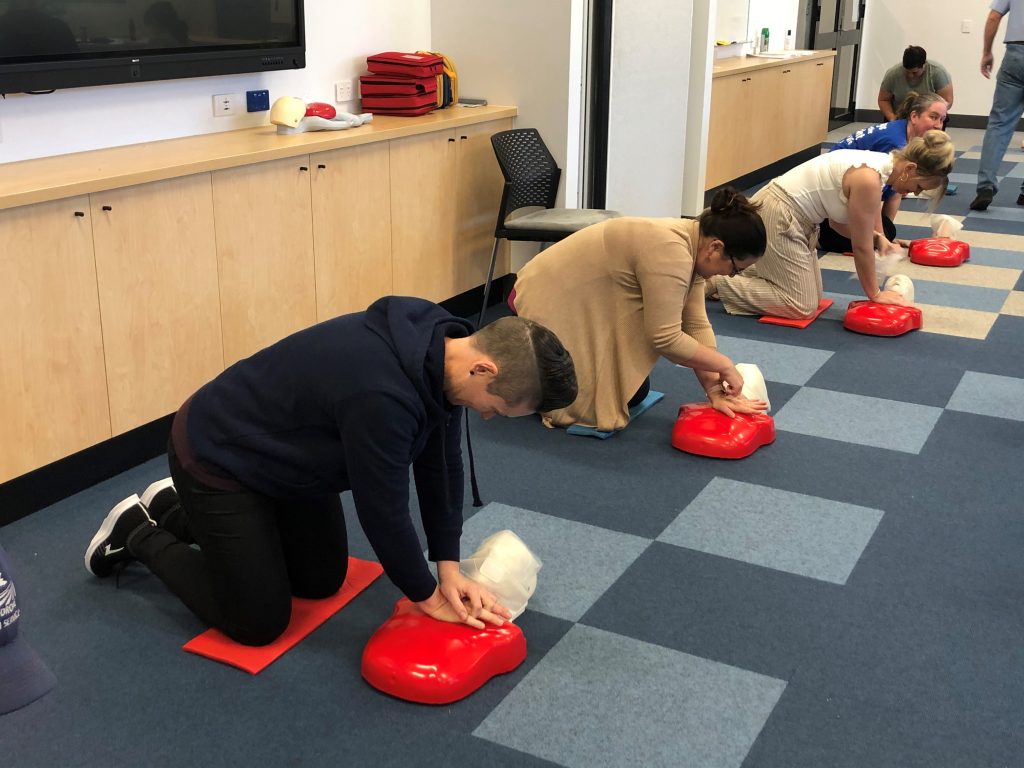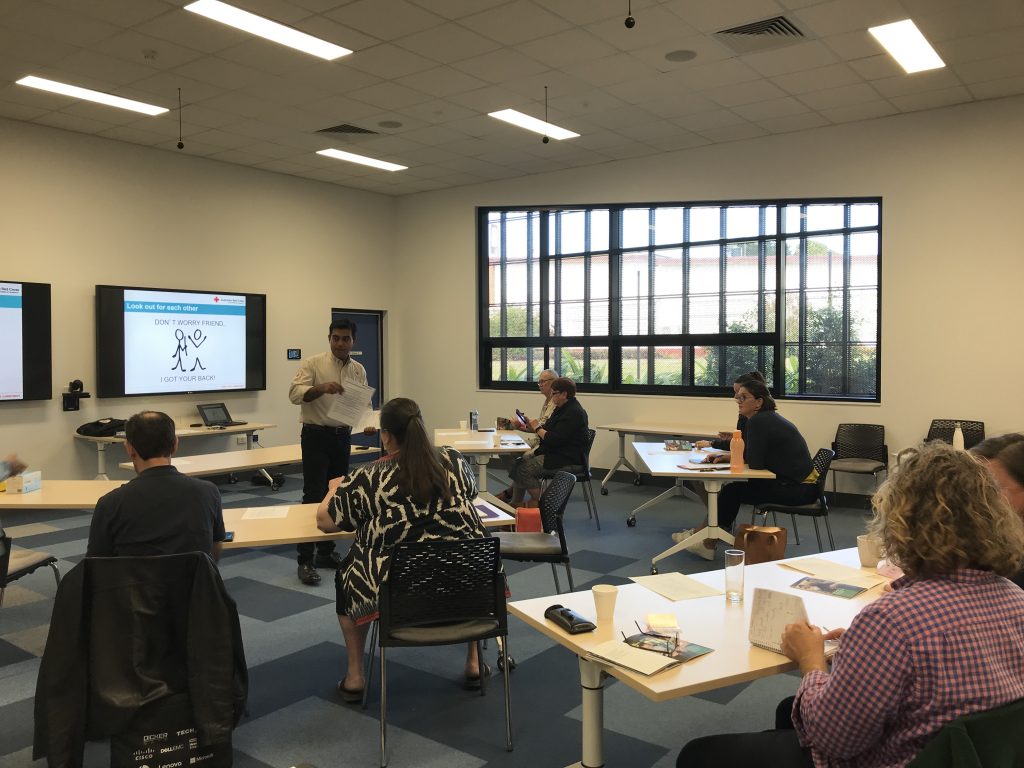Foundation for Rural & Regional Renewal (FRRR)
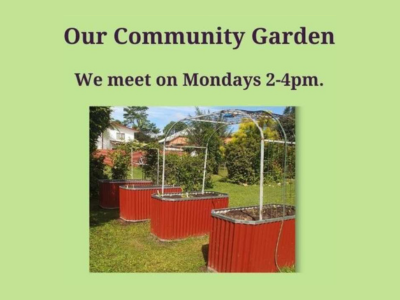
An ANZ Seeds of Renewal Grant has helped a far north Queensland community vulnerable to food insecurity establish a community garden. It’s been invaluable in educating locals on how they can grow their own food and alleviate the impacts of road closures that often follow in the wake of cyclones, affecting local food deliveries.
The project has been led by Eacham Community Help Organisation (ECHO), the Neighbourhood House for the South East Tablelands, based in Malanda in Far North Queensland. Day to day, it delivers individual and community support services, as well as in-home aged care, facilities and events, activities and workshops. The House is used by a large number of people across the community including youth, parents, First Nations groups, senior Australians, people living with disability, visiting services, and those facing hardship and crisis including homeless persons, parents and families.
One of the challenges that ECHO deals with across all these groups is food insecurity, especially following the impacts of disaster events like cyclones, which can see road transport delayed due to damaged and flooded roads, leaving local supermarkets bare of stock for days or even weeks.
So, a community garden was included in both the Malanda Masterplan and the Tablelands Regional Council Community Roadmap. As the community hub, ECHO took the lead on this project, which is yielding broad community benefits.
The focus has been growing together, learning how to propagate, harvest and prepare suitable foods at the Community Garden. By understanding which perennial plants and fruiting trees and bushes are suited to the tropics, and how to grow them, individuals and families can have an ongoing source of fresh food. Afterall, “being empowered enhances overall wellbeing.”
To support their efforts, ECHO received a $9,340 grant from the ANZ Seeds of Renewal Program in 2022. Funding went toward the garden design, plant recommendations, initial planting of fruiting trees, bushes, vines and rootstock of tropical staples and raised beds for demonstration herb garden and salad garden. It also contributed to wages for a community worker to manage the project for the first six months, with assistance from volunteers and, as the demonstration garden progressed, it helped fund short workshops delivered by an experienced community worker and volunteer.
Gardeners meet every week, including a core group of four regulars, four occasional participants and 20 visitors who share knowledge or learn. Groups, including home schoolers and school students, have come for dedicated volunteering sessions too. In fact, the garden has become the venue for special events like Mental Health Week, NAIDOC day, staff events and more.
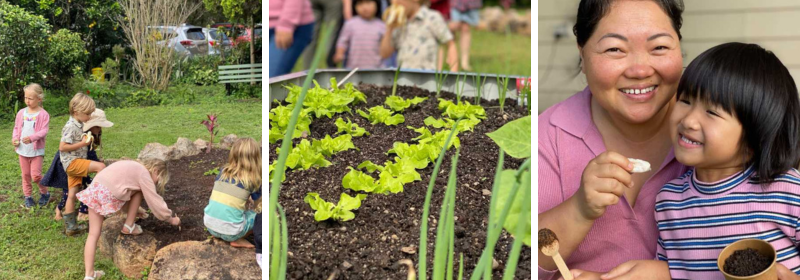
From all accounts, there have been fantastic crops of food – plenty for volunteers, visitors and emergency relief. According to Belinda Moore, Community Engagement and Development Officer, “This is a pleasant surprise and a testament to the efforts of the volunteers. Everyone is learning a lot about tropical edibles and taking cuttings away to share and grow.
“The grant helped us to launch into our Community Garden with purpose and the support of a paid worker. Without it, progress would be slow, the garden would be nowhere near as well-made and productive, and volunteers would be less supported.
“Including children in the garden is the best outcome so far – it’s exciting for the volunteers to know that ‘their’ garden is being shared to influence and inspire children. Showing people some of the tropical edibles they can easily grow from cuttings is the ongoing legacy of this garden and meets the intention of building a resilient and thriving community.”
The far northern tip of Queensland – Gulf country – extends from wide plains through to tropical rainforest, but mostly comprises dry tropical savannah country. It s a very isolated region, yet is a productive beef grazing area, with some areas of horticulture. About 10,000 people live in 234,000 square kilometres – an area the equivalent size of Victoria. About 25% of people in the Gulf region identify as Indigenous.
Gulf Savannah Natural Resource Management (GSNRM) connects science, technology and landcare to improve productivity for farmers and graziers. Drought is a common challenge, with frequent extended dry seasons recorded over the last 30 years. GSNRM saw an opportunity to bring together producers for a series of forums across the region to strengthen networks and generally build the community’s capacity to better respond to the impacts of drought. They were supported by a Future Drought Fund Networks to Build Drought Resilience grant of $49,700.
To make the most of the time, organisers planned a farm visit during the Farming Forum, followed by information sessions and a lunch. With most graziers travelling long distances, their session was over two days, providing an opportunity for participants to not only gain new knowledge and skills but also reinforce and strengthen connections between these very isolated residents at social events. The face-to-face events provided a mix of guest speakers to impart knowledge and practical implementation skills or planning sessions to start putting the ideas into action. This included building
understanding of the risks posed by drought by exposing participants to discussions about the future of the region in the face of adverse climatic conditions and then discussing potential solutions. This approach empowered community members to make business resilience changes and fostered partnerships and collaboration between growers, graziers, agronomists, extension officers, industry, drought hub and government.
The organisers also recognised that, by far, the greatest risk posed by drought and the unpredictable nature of climate change is deteriorating mental health. The Unbreakable Success Matrix program, which involved online learning supported by live group discussions and mentoring, gave people the tools to mentally cope with those elements of their lives that cannot be controlled. This structure enabled geographically diverse individuals to come together over several weeks and develop an understanding of how others are coping or not coping, and receive the benefits of listening to the coaching and ideas from the facilitators.
Regular touch points enabled people to get to know each other better and therefore, as the program progressed, saw more vulnerable sharing and thus greater problem solving within the group. Assessment showed the ‘fear factor’ had significantly reduced for all respondents.
These events had the support of the Gulf Cattlemen’s Association and the FNQ Growers Association and were promoted widely through a range of different databases. This ensured a diverse cross-section of the community participated, beyond those that GSNRM normally engages with.
In total, 106 people participated in the three events, ranging from 15 to 74 years, although around 80% were aged 45-64. Around 15% were 15-24. Participants were often intergenerational and reflected a mix of new and established residents and was reflective of the general community.
The opportunity to contemplate drought and climate change in a supportive atmosphere and consider how prepared they are, or not, saw 42% of respondents say that the forums had ‘definitely prompted‘ them to change something in their business, while another 25% said they were ‘somewhat prompted’. Almost 100% of all respondents said that each speaker session was either ‘very valuable‘ or ’valuable’. For the GSNRM group itself, their network has increased dramatically and it has also seen significant increases in the interconnections between virtually all aspects of the
industry, especially across sectors.
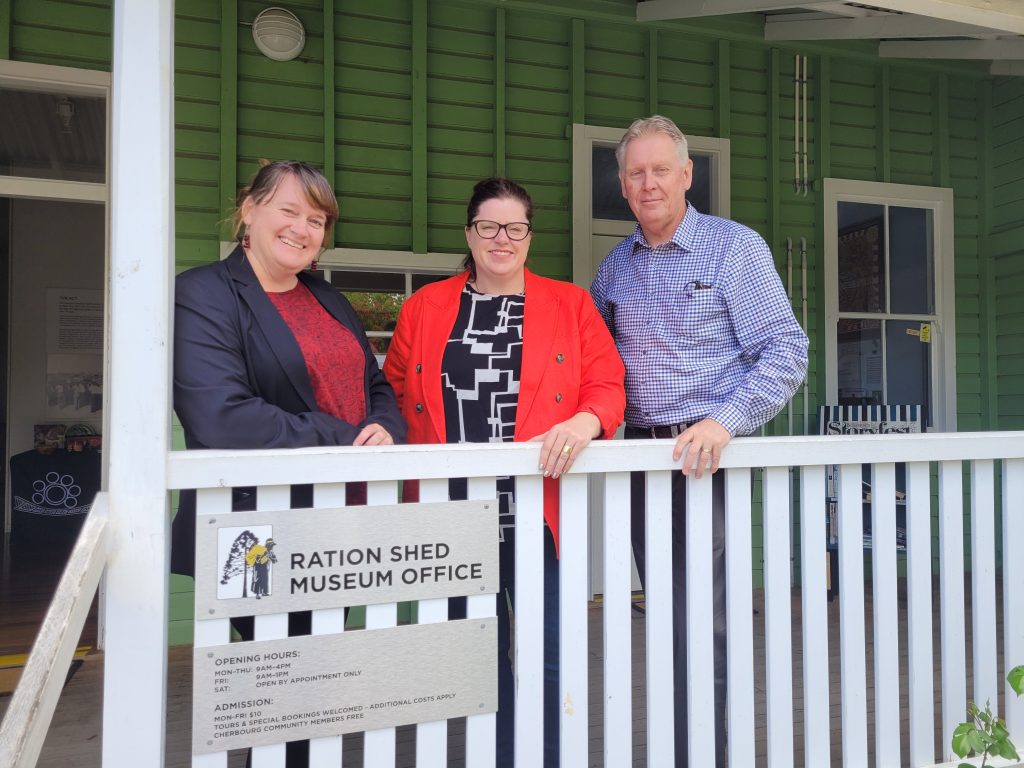
A new initiative to enable Burnett Inland communities to be disaster resilient and future ready has begun to roll out.
The three-year project is a collaborative delivery approach between Red Earth Community Foundation and the Foundation for Rural & Regional Renewal, in partnership with the Minderoo Foundation and the Australian Government.
Almost $982,000 has been provided by the Australian Government, through the National Emergency Management Agency, under the Preparing Australian Communities Program – Local Stream. This funding is part of the $150 million awarded for 158 projects across Australia that are improving the resilience of communities against bushfires, floods and tropical cyclones. In addition, Minderoo Foundation is contributing $1,895,737.
The Disaster Resilient: Future Ready Burnett Inland initiative will mean that local community members, grassroots community organisations and community networks across the region can develop and lead initiatives that strengthen their awareness, increase their preparedness, and enhance their capacity to thrive and be resilient to the impacts of climate, natural disasters, and other disruptions.
Partnering communities will have access to flexible funding for activities that support their community innovation and design process, as well as the activation of ideas and actions.
Melinda Jones, General Manager, Red Earth Community Foundation says that the focus is very much on community-led resilience-building activities – with the agenda and solutions driven by local people, for local people.
“There’s been a lot of talk about the different things that we could do to ensure that our region is better prepared for, able to respond to and recover from natural disasters. This initiative will give us the chance to agree on exactly what those things are and then work together to put the strategies and tactics we develop into action at a grassroots community level.
“The role of Red Earth will be to act as the local program coordination point. We’ve already had input into the program approach and as we move into implementation, we’ll coordinate program activities, ensuring Burnett Inland communities and regional stakeholders have the chance to get involved. But our key role will be to ensure that all aspects of the project bring value to the Burnett Inland region and add capacity to existing systems, processes, and local work to date,” Ms Jones said.
FRRR’s Disaster Resilience and Recovery Lead, Nina O’Brien, said FRRR is delighted to be working closely with Red Earth to implement the Disaster Resilient: Future Ready program in the Burnett.
“From our work with remote, rural and regional communities over the last 22 years, we know that every place is different – and even within a region, there are nuances and different needs. We also know that locals usually have the answers to the challenges around preparing for and responding to our changing climate.
“That’s why we are excited to bring this program to the Burnett. The generous support of the Minderoo Foundation, who bring an adaptable approach towards community resilience planning, means that we can take the time necessary to have conversations in each community, co-design strategies and solutions and, importantly, to activate the ideas and actions that have been collectively prioritised to strengthen resilience to cyclone, flood and other climate impacts.
“Having piloted this model in regional NSW and now working with several communities in Victoria, we know the processes, strategies and actions will look different in each place. In some places, it might include things like workshops to increase understanding of resilience, or strengthening connections within the community, or enhancing local knowledge of climate risks specific to your area or small locality. In other places that might all exist and what’s needed is a clear strategy for adapting to change and disruption, or a focused effort on disaster preparedness that adds value to existing systems and processes.
“Whatever it is, our team will be there to support the local community in prioritising, developing, testing and implementing those ideas,” Ms O’Brien said.
Matthew Chesnais, Resilient Communities Mission Lead at Minderoo Foundation’s Fire and Flood Resilience initiative, believes the project is critical for the region.
“The communities in the Burnett Inland each face different opportunities and challenges. We look forward to working with Red Earth Community Foundation and FRRR to reference the Resilient Communities Framework as part of the project to help the communities consider a systemic and inclusive approach towards their resilience planning.
“Our mission is to strengthen the resilience of identified communities at risk of disasters and we hope to take the learnings from this project and share them nationally to help other communities be disaster resilient,” Mr Chesnais said.
Another stream of the initiative will be to support collaboration across regional agencies and organisations and the development of regional level resilience building initiatives for collective impact.
Find out more about the DR:FR Burnett Inland program and sign up here to receive regular updates and be notified about how you can get involved.
Girls from Oz (g-oz) is committed to improving education and employment outcomes for students in remote Australia, particularly Aboriginal girls and women. The g-oz program uses a tried and tested engagement model, developed over 30 years by the Australian School of Performing Arts, to engage and re-engage females living in some of the most at-risk communities in Australia.
Since 2010, more than 200 girls have participated in 14 trips to five capital cities for a week of shared cultural exchange and 105 instructors have assisted in running 126 week-long Community Programs, engaging more than 4,000 girls across five communities.
In 2022, FRRR contributed $9,212 via a Strengthening Rural Communities grant funded by Friends of FRRR and FRRR towards the g-oz ‘Helping to keep language alive in Kowanyama’ project. The aim of the project is to contribute to Kowanyama State School’s efforts to reintroduce the traditional languages of Kowanyama. To complement the initiative, g-oz has begun its support of language preservation and revitalisation via the completion of song translation and transcription.
Over the past four months, g-oz has been meeting and working with local female Elders each school term as part of their Community Program visits. Their instructors have had some great conversations and have identified a song that they can work together with the women to transcribe, record and teach in the traditional language.
g-oz has found that building trusted relationships and working in collaboration with the local women can be a slow process. As their goal is to support the ambitions of the women in the delivery of their language revitalisation project, and especially their work with school students at Kowanyama State School, g-oz plans to walk alongside them, working within the Elders’ timeframe to deliver the project.
g-oz plans to develop teaching resources as part of the recording process and to present the finished songs to the community in May, with monitoring and evaluation to be undertaken before the conclusion of the project in August 2023.
27 community groups in disaster impacted areas of rural NSW and QLD to receive funding
FRRR, in partnership with Suncorp and GIO, has awarded $500,000 to 27 community groups and local not-for-profits (NFPs) to support recovery initiatives in rural communities impacted by the East Coast Australia floods in February and March 2022.
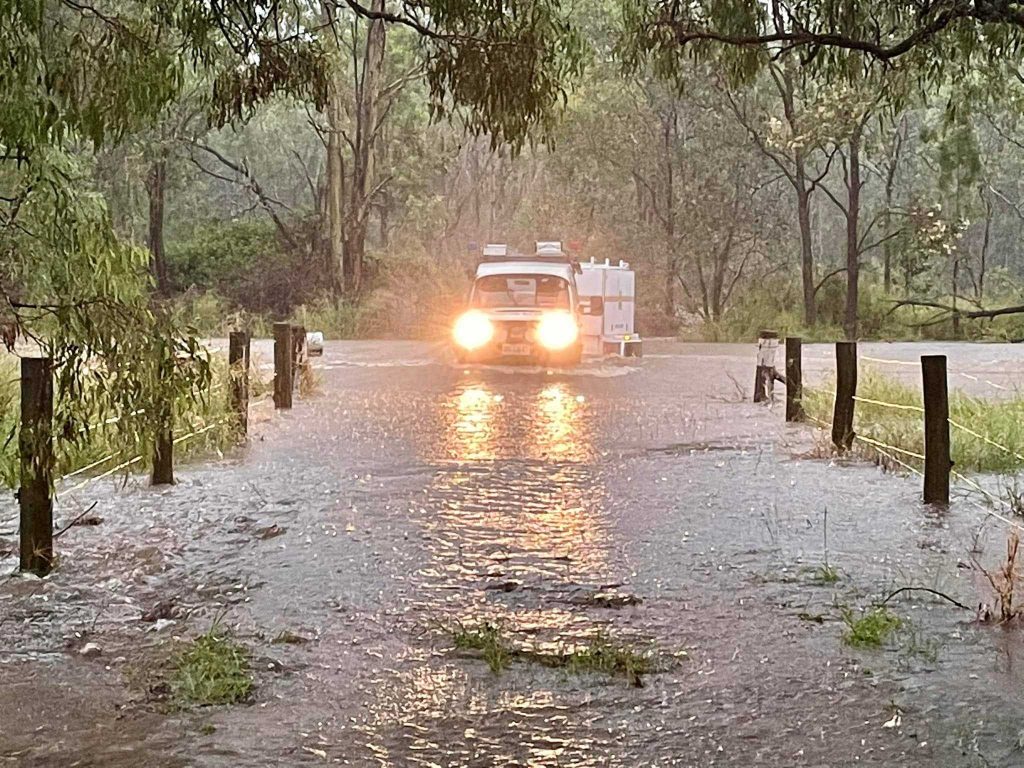
The grants, which are through the Rebuilding Futures program, range from $4,129 to $25,000.
They will be used to fund a range of projects, including equipping community facilities to be prepared for disasters, mental health training, community resilience and healing events, food security initiatives, environmental restoration, buying emergency equipment, restoring flood damaged infrastructure, developing preparedness plans and mentoring initiatives.
This is the second round of grants to come from the $1 million pledge the Suncorp Group made to FRRR to support recovery and preparedness activities in remote, rural and regional communities impacted by natural disasters.
Suncorp Group Head of Disaster Response & Customer Experience, Cath Stewart, said the diversity of applications shows the importance of responsive and flexible funding.
“The grant applications we received in this round are all the proof needed to reaffirm community leaders are best placed to understand exactly what the people in their areas need at this moment in time.
“These communities were all impacted by the same natural disaster, yet it’s very clear that they have diverse needs based on the point that they’re at on their road to recovery. We are pleased to be able to support a range of initiatives from building organisational capacity and giving locals the opportunity to develop their skills, to investing in life saving equipment and improving access to services,” said Ms Stewart.
Nina O’Brien, Disaster Resilience and Climate Solutions Lead at FRRR, said the grant recipients have shown commitment to the long-term recovery and resilience of their communities.
“People have had their lives turned upside down, yet they’re determined to work together to make sure their communities bounce back stronger than ever from the floods. Thanks to the generous support of GIO and Suncorp, we are able to offer the funding that will allow them to address their unique community recovery needs for rebuilding their future, and that’s exactly what each of the NFPs and community groups receiving funding are on a mission to do.
“Each of these initiatives, whether it be an upgrade to existing community facilities, the renewal of shared social spaces, improved community facilities, the purchase of emergency equipment or mental health support, is a practical response that will support long term recovery, which is exactly what is needed in the areas affected by floods and storms in early 2022.
“Recovery will take many years and every community has different needs and different capacity levels when it comes to tackling the recovery process. That’s why it’s so crucial that we provide these local groups with the support they need to build back better and design their own path to recovery, when they are ready,” said Ms O’Brien.
Among the 27 projects funded this round are:
- Surf Life Saving Far North Coast Branch Inc, Byron Bay, NSW – Mental Health Training and Support – $9,650 – Build community resilience through delivering a Mental Health Training and Support program to life savers, equipping them with skills to support themselves and their community.
- Resilient Lismore Incorporated, Lismore, NSW – Resilient Lismore – community recovery and connection events – $25,000 – Bolstering resilience to disaster by strengthening community connections and increasing mental health and wellbeing via a series of community events to be held around the anniversary of the February 2022 flood event in Lismore.
- Wilsons Creek Community Hall Inc, Wilsons Creek, NSW – Wilsons Creek Community Hall Solar Storage Battery – $12,240 – Build capacity of Wilsons Creek Community Hall to stay in contact by purchasing a solar battery to ensure power supply during extreme weather events.
- The Trustee for Top Blokes Foundation, Beaudesert, QLD – Building the resilience of vulnerable young men in the Scenic Rim – $25,000 – Improve the mental health and community engagement skills of at risk and disadvantaged young boys to bolster recovery in flood impacted communities.
- Glastonbury Hall & Recreation Association Inc, Glastonbury, QLD – Rebuilding for the Future – Glastonbury Disaster Centre Hub – $25,000 – Build capacity at Glastonbury Hall to support community with adequate kitchen facilities during refuge from disasters and to support community connection activities.
- Tansey Show Society Incorporated, Tansey, QLD – Upgrade facilities at Tansey Showgrounds – $15,000 – Boost organisational resilience and community wellbeing by repairing the flood damaged shower blocks at Tansey Showgrounds.
The full list of grant recipients and their projects is below.
More information on the Rebuilding Futures grant program is available on FRRR’s website.
| Organisation | Project | Location | Grant | |||
|---|---|---|---|---|---|---|
| NEW SOUTH WALES | ||||||
| Agape Outreach Inc | After the Floods - Food Insecurity & Poverty Support - Caring for the Community Support community members impacted by floods to access food relief in an environment of insecurity and homelessness risk. | Tweed | $15,000 | |||
| Byron Region Community College | Demonstration Garden for Sustainability and Resilience Strengthen the social fabric of Byron with a sustainable and resilient garden at the adult learning centre designed to inspire and educate community with an interactive space also supporting mental health and wellbeing. | Mullumbimby | $24,630 | |||
| Casino Indoor Stadium Association Inc | Blue Light Nights Build community capacity of children and young people in Casino with equipment for Blue Light Night events such as discos that will develop relationships with local police and support learning event management skills. | Casino | $10,572 | |||
| Friends Lismore Regional Gallery Inc | Beyond Bricks and Mortar: The Art of Renewal in Lismore Renew and activate the arts community in Lismore through tours of neighboring galleries, open art studios and panels to bolster regeneration of artist practice and broad community engagement. | Lismore | $12,295 | |||
| Human Nature Adventure Therapy Ltd | Thrive Outside: A Recovery and Resilience Project Support young people who experienced trauma through the flood events to build resilience through therapeutic outdoor group activities. | Ballina | $19,920 | |||
| Holding Hands Undergound | The Grief and Gratitude Project: A Process for Collective Care and Connection in a Time of Major Crisis Supporting community connection with an arts based event to enable collective recovery activity with themes of grief and gratitude. | Mullumbimby | $25,000 | |||
| Hunter Prelude Limited | Hunter Prelude Supported Playgroups Increase support to playgroups with additional allied health or teaching staff that enhance the engagement of parents and address issues of isolation and trauma within the families. | Kurri/Cessnock | $19,400 | |||
| Nambucca Valley Phoenix Limited | Roof Replacement Ceramics Yurt & Kitchen Replace damaged roofing at the ceramics yurt and kitchen annex to increase resilience of the facility's infrastructure to weather and support ongoing community activities. | Bowraville | $25,000 | |||
| Northern Rivers Community Healing Hub - Rekindling the Spirit Limited | Northern Rivers Community Healing Hub in Action Build capacity for piloting a transition to paid / volunteer model of community healing practices that will support holistic recovery now and ongoing with strong health partnerships. | Lismore | $24,750 | |||
| Resilient Lismore Incorporated | Resilient Lismore - Community Recovery and Connection Event Bolstering resilience to disaster by strengthening community connections and increasing mental health and wellbeing via a series of community events to be held around the anniversary of the February 2022 flood event in Lismore. | Lismore | $25,000 | |||
| Surf Life Saving Far North Coast Branch Inc | Mental Health Training and Support Build community resilience through delivering a Mental Health Training and Support program to life savers equipping them with skills to support themselves and their community. | Byron Bay | $9,650 | |||
| The Big Scrub Orchestra | Modern Band Healing Through Songwriting and Music to Improve Resilience and Wellbeing for Young People Impacted by Floods Build the resilience of school children impacted and displaced by flooding in Grafton, Lismore and Casino through musical workshops that will culminate in a performance at the local Jacaranda Festival. | Grafton | $25,000 | |||
| The Colony Bees Association Inc | Pollinate Country Rebuilding pollinator health and habitat in the Northern Rivers, by establishing new beehives, pollinator sanctuaries and native habitats. | Ballina | $18,202 | |||
| Volunteer Marine Rescue NSW | Capacity Building for the Improved Response to Emergencies with Our Region Build capacity of Volunteer Marine Rescue to support flood impacted communities in the future and enhance their everyday emergency operations with a trailer to transport a rescue boat. | Brunswick Heads | $15,000 | |||
| Wesley Community Services Limited, trading as Wesley Mission | Wesley LifeForce Suicide Prevention and Mental Health Resilience Project Support mental health and reduce stigma associated with suicide through training to develop skills and understanding in the Coffs Harbour community. | Coffs Harbour | $22,000 | |||
| Wilsons Creek Community Hall Inc | Wilsons Creek Community Hall Solar Storage Battery Build capacity of Wilsons Creek Community Hall to stay in contact by purchasing a solar battery to ensure power supply during extreme weather events. | Wilsons Creek | $12,240 | |||
| QUEENSLAND | ||||||
| Glastonbury Hall & Recreation Association Inc | Rebuilding for the Future - Glastonbury Disaster Centre Hub Build capacity at Glastonbury Hall to support community with adequate kitchen facilities during refuge from disasters and to support community connection activities. | Glastonbury | $25,000 | |||
| Highfields Pioneer Village Museum and Park Inc | Ramp It Up Repair pathways and ramps impacted by flood waters to provide access for disabled and elderly visitors. | Highfields | $4,129 | |||
| Kerry Memorial Hall | Kerry Valley: Diversity, Resilience & Strength (DRS) Upgrade historical community facilities with infrastructure materials and equipment to enable compliance for evacuation centre and to strengthen community wellbeing. | Kerry | $7,293 | |||
| Kin Kin Community Group Inc | Volunteer and Emergency Response Community Hub Build capacity through setting up local facility to support community during disasters. | Kin Kin & Como | $25,000 | |||
| Lowood Group State Emergency Service Financial Support Unit Inc | Lowood Emergency Back Up Generator Build the capacity of Lowood SES through the purchase of a generator to ensure shed operations during power outages to support crew and community needs. | Lowood | $23,485 | |||
| Mooloolah Valley Community Association Inc | Emergency Power for the Community Centre Build the organisational capacity of the Mooloolah Valley Community Centre with the purchase of a solar battery for power supply in extreme weather events. | Mooloolah Valley | $25,000 | |||
| Rathdowney and District Memorial Grounds Association Incorporated | Caravan Park Hot Water & Dryer Build community resilience and organisational capacity with the purchase of a washing machine and clothes dryer to support tenants, visitors, and the community at the volunteer run caravan park in Rathdowney. | Rathdowney | $7,784 | |||
| Tansey Show Society Incorporated | Upgrade Facilities at Tansey Showgrounds Boost organisational resilience and community wellbeing by repairing the flood damaged shower blocks at Tansey Showgrounds. | Tansey | $15,000 | |||
| The Trustee for Raise Foundation | Raise Mentor Program - Pittsworth State High School Build resilience in young people affected by floods with supported mentoring at Pittsworth State High School. | Pittsworth | $25,000 | |||
| The Trustee for Top Blokes Foundation | Building the Resilience of Vulnerable Young Men in the Scenic Rim Improve the mental health and community engagement skills of at risk and disadvantaged young boys to bolster recovery in flood impacted communities. | Beaudesert | $25,000 | |||
| Toowoomba Hospital Foundation | Saving and Preserving the Darling Downs Health Museum Weather Affected Collection and Displays Support restoration and disaster preparedness planning to save the flood impacted collection of Toowoomba Hospital Health Museum and train volunteers to respond effectively in future emergency situations. | Toowoomba | $16,560 | |||
The small community of Bowen, on the north Queensland coast, is economically diverse, boasting agriculture, tourism, fishing and mining. Despite this, it experiences high levels of youth unemployment.
PCYC Bowen branch manager Sergeant Michelle O’Regan explains that having high youth unemployment does not necessarily mean a high youth crime rate, as some might assume, but it does present challenges for the community.
“We take a proactive approach by giving young people leadership and building their employability skills. We tap into local resources and connect schools with businesses to build that sense of community. They say it takes a village to raise a child, so our customer is the whole community – it’s about working together and opening up opportunities for both sides to connect,” said Sergeant O’Regan.
Seed funding
PCYC Queensland’s Greener Futures program aimed to support ten students from Bowen State High School gain hands-on experience in the horticulture industry and assist them to become more employable.

Four years ago, PCYC Queensland received $8,000 through FRRR’s ANZ Seeds of Renewal program to buy some basic equipment for the initiative.
“Without that initial funding, we would have never have got the program off the ground. While the program has evolved over time, looking back [the grant] was pivotal to where we are now,” Sergeant O’Regan explains.
She says that the long-term plan for Greener Futures was two-pronged; to expand quality employment opportunities in local industries for young people facing barriers in the labour market, and to strengthen the economic vitality of the local sector through strategic support and consumer education.
Sergeant O’Regan goes on to say that the initial funds were a catalyst for attracting further support and gave credibility to the initiative and what we were trying to achieve.
“The initial pilot program was a successful partnership between the high school, Stackelroth Farms, and Prospect Agriculture, with in-kind support from other local businesses and organisations that ensured the program’s success.
“This program morphed into the Resilience for life (R4L) program, which focussed on more the psychological wellbeing of our youth and attracted funds from Perpetual. From there R4L eventually became our now hugely successful WORKFit program. We received $20,000 in funds from the Queensland Government, which enabled us to employ a community development officer.
“But without the initial injection of funding from ANZ and support from FRRR, we would have struggled to get the pilot program up and running and, therefore, we would not have ended up with the program we are delivering now.
“All I know, when you build a house you need first the foundation. Small grants – five or six years later we look back and see that those funds were really pivotal to where we are now. We could never have pre-planned that.”
“There are multiple layers – from small things big things can grow. For example, if we don’t have a working kitchen, we can’t hold community events or run mental health awareness programs. A bus, even, can really make a big difference to a small community.”
The role of Philanthropy
Sergeant O’Regan believes that communities need to help themselves rather than being entirely reliant on money.
“The role of philanthropy is about giving that a bit of a boost. That confidence that what they are working towards is going to be beneficial.
“It should be a hand-up, not a hand-out. Some communities are reliant on money coming in from outside, rather than working together. If you want something, you have got to work towards it. Whether it is a raffle or something else. Our young people have put in around 5,000 hours – they really want to be part of what we do.”
Sergeant O’Regan explains that people want to help, but they don’t always know how. Corporates may not have the time or the connection within the community to initiate support, but by spending time with a group, they can often work out where they can help best.
“It’s not always about money. Support can be in time and expertise. For example, I would love to be able to connect with a good business mentor, who would give up a bit of their time, so I can share my vision and ideas.
“It is about working in partnership. Come and have a look, philanthropists – see for yourselves. Let’s work together.”
On Koa Country
Outback Festival Inc is situated in the Queensland outback town of Winton, a 10-hour drive from Cairns. They’re a not-for-profit organisation that was formed in 1972 when the inaugural Winton Outback Festival took place. Since 1973, the festival has been held biennially and has grown from a small-town event attracting fewer than 1,000 visitors to a major regional event that drew in a record 14,976 attendees over the five days – pretty impressive for a town of only 900 people!
With the help of a $45,000 FRRR grant, funded by the Australian Government through the Tackling Tough Times Together program, Outback Festival Inc was able to host one of their largest Festivals capitalising on the holidaying demographic contained to Queensland due to state borders being closed. The theme was ‘Giants of the Outback’ which showcased the story of Qantas and the role that Australia, and the historic town of Winton, has played in the history of air travel.
In 2021, the festival was more crucial to the community than ever, as a lot of locals in Winton and the surrounding towns were feeling socially isolated following the COVID pandemic, not to mention the hit that the economy had taken due to the absence of visitors and tourists.
The festival was hailed an amazing success, with a record 80% increase in numbers that saw upwards of 4,000 visitors book out nearby motels, camping grounds and hotels. Families from all around Queensland road-tripped their way to Winton for an outback school holiday experience.
People from all ages and backgrounds participated in and attended open air concerts, family sports events, arts performances, workshops and even watched a stunning pyrotechnic display.
Winton is known as the birthplace of Qantas and so, to celebrate 100 years of Qantas, a sunset gala dinner with the theme “Centenary of Flight” was held on the Winton airport tarmac with over 300 guests attending along with the 2nd Cavalry Regiment as invited guests.
As a result of the Outback Festival, Winton got a much-needed influx of revenue with more than $1.2 million being spent by attendees during the five days of quintessential Aussie fun. Local business operators reported huge spikes in trading, with some seeing an increase of up to 127%.
For more inspiring stories like this, head to our FY 2021/22 Annual Review.
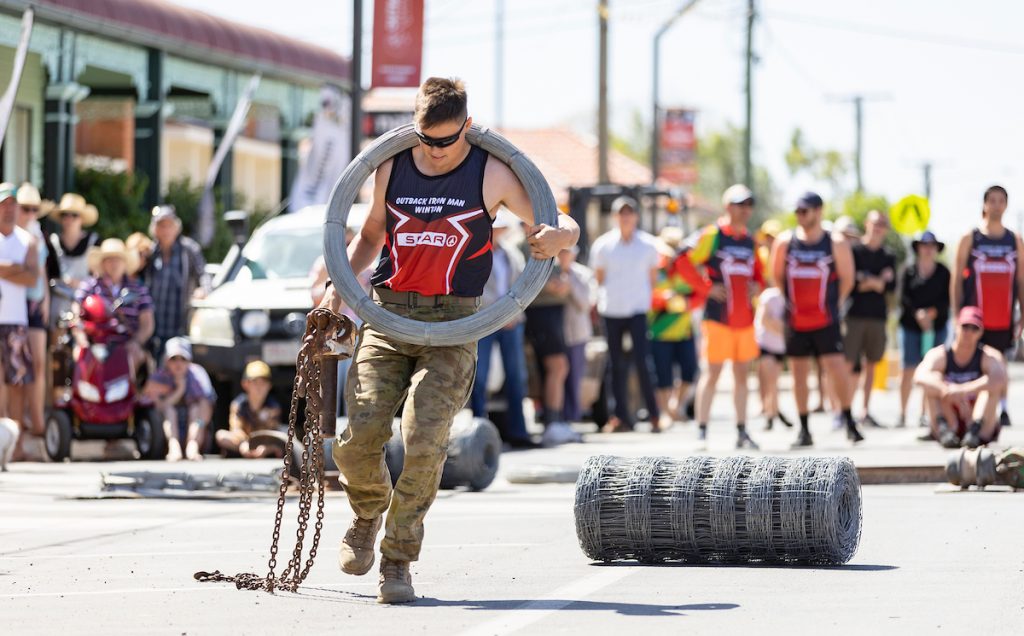 Photos were captured by Barry Alsop of Eyes Wide Open.
Photos were captured by Barry Alsop of Eyes Wide Open.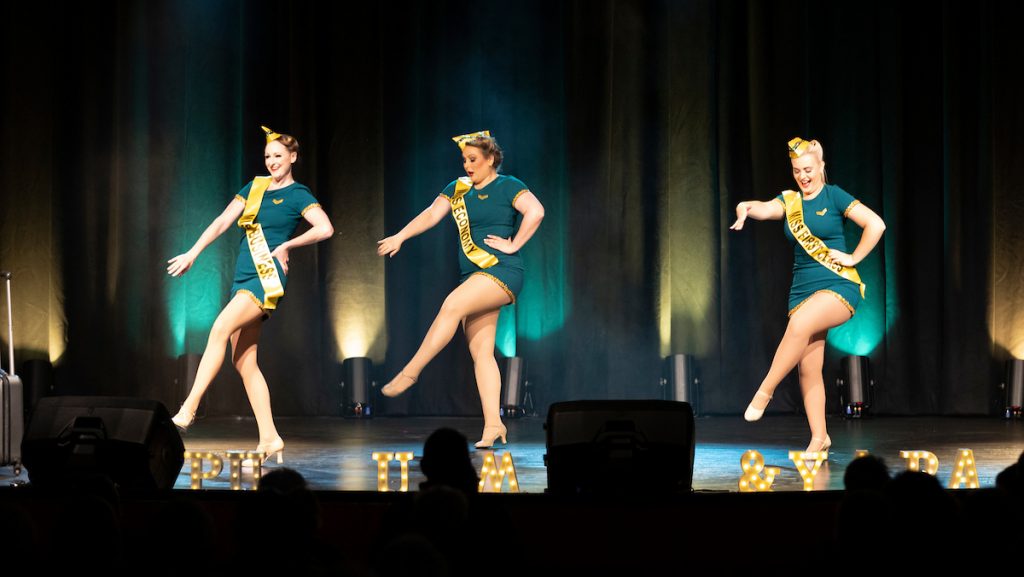 Photos were captured by Barry Alsop of Eyes Wide Open.
Photos were captured by Barry Alsop of Eyes Wide Open.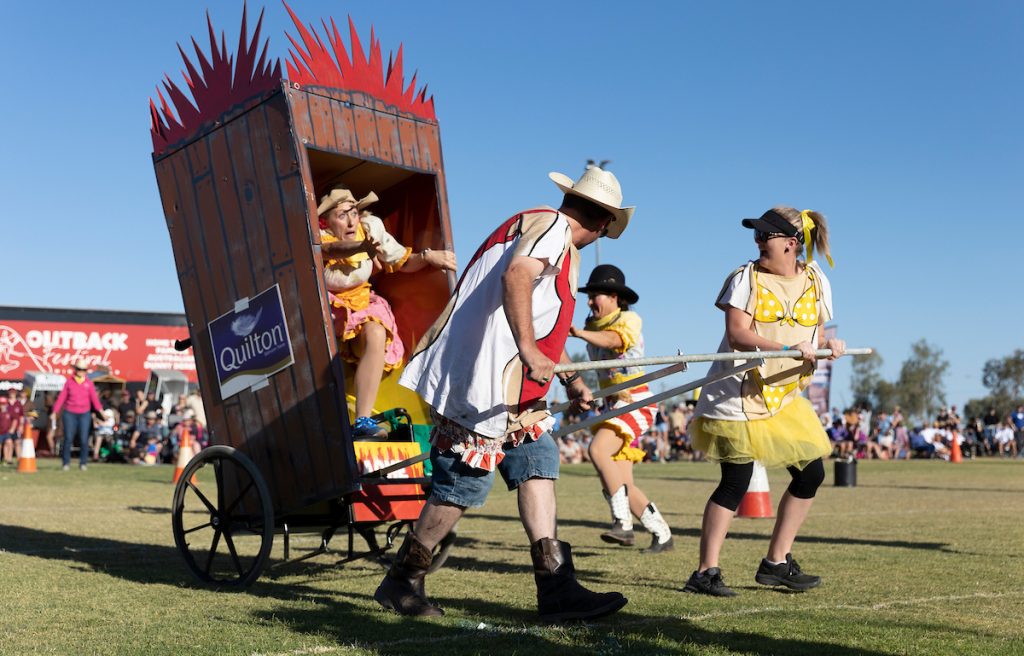 Photos were captured by Barry Alsop of Eyes Wide Open.
Photos were captured by Barry Alsop of Eyes Wide Open.
On Bigambul Country
Macintyre Ag Alliance, a not-for-profit organisation, is based in Goondiwindi, a four-hour drive west of Brisbane. They work collaboratively with the community to enhance agricultural productivity in the area and create healthy land, with the goal of passing on a more stable environment to the next generation.
With the help of a $10,365 FRRR grant through the ANZ Seeds of Renewal program, Macintyre Ag Alliance was able to implement their Skilling Her Enterprise project. The project consisted of a series of workshops focused on upskilling regional women with the key skills they need to build and maintain successful off farm businesses. FRRR funds went toward the costs of some of the speakers who led the workshops as well as venue hire, catering, bookkeeping and admin.
Over a period of five months, three workshops were held which covered topics like business vision and direction, budget, bookkeeping, mindset and mental health, setting up for sustainable success and social media marketing.
At the time of the workshops, the area was being impacted by border closures. Goondiwindi is right on the NSW / QLD border, which meant that some of the women who had planned to attend were unable to make it in person. However, Macintyre Ag Alliance was able to adapt in order to make that particular workshop both an online event and an in-person event, which meant that everyone who wanted to was still able to benefit from the knowledge and insight that the speakers had to share.
It was a great opportunity to showcase some incredible local women, as both the attendees and speakers had a lot to contribute. It provided an opportunity for these women to come together, form a bond and support one another.
“We are most proud of the fact that these like-minded women are now connected through workshops that they all took part in. These sessions facilitated really wonderful and safe discussions and the women went away saying they felt more confident, empowered and motivated to make changes to the way they live their lives and run their businesses.”
Louise Carroll, Coordinator.
For more inspiring stories like this, head to our FY 2021/22 Annual Review.
On Yugambeh Country
The Little Pocket Association is located in Beechmont, a quiet village nestled in the Scenic Rim in south east Queensland. They’re a community organisation that provides a safe and supportive platform for local families to connect with community and place. Because of their work, they were well positioned to assist with the recovery process in the wake of the 2019/20 Black Summer bushfires.
Through the News Corp Bushfire Fund program, FRRR helped to fund The Little Pocket Association’s initiative ‘Regeneration – Creative Bushfire Recovery’ project. The community-led 24-month creative recovery project was designed to offer the community various projects, workshops, events and activities that would culminate in a series of murals and a memorial.
As part of the project, 25 local artists, Indigenous Elders, Scenic Rim counsellors, Creative Community Development Officers, industry professionals from the arts, health and community sector and residents who were deeply impacted by the bushfires, came together and participated in a three-day creative recovery workshop.
Those who attended the workshop underwent creative recovery training, where they built an understanding of what a successful disaster recovery process would look like. Not only did this workshop provide an outline for how the project would take shape but there were so many unexpected outcomes from the weekend.
The connections and friendships that formed over the two days were the foundation from which the project grew. For those who attended, it was full of reflection, self-care, deep connection, healing and learning.
It was also crucial to The Little Pocket Association that there was community and cultural consultation throughout the process. They hosted four community days attended by 200 residents and created an online community where locals could give their input on the murals and memorial that would be created.
After a two-day mural workshop, stage one of the project was completed and has seen beautiful murals adorn the community. The paintings celebrate connection to place and represent the community’s shared experience of the bushfires. The memorial acknowledges and speaks meaningfully to the residents affected by the Sarabah bushfire in September 2019.
“We are so proud of what The Little Pocket and the Regeneration – Creative Bushfire Recovery project has achieved… We have successfully delivered a creative recovery project in our community over the past two years with many creative outputs and so many tangible and intangible outcomes for the community and the individuals who have been involved.”
Jessica Brown, Director of The Little Pocket Association.
The feedback from the artists and community has been overwhelmingly positive. As a result of this initiative, social inclusion has been boosted and a sense of belonging and connectedness within the community has been restored.
Since 2006, the Tablelands community in Far North Queensland has experienced three cyclones, floods in 2015, bushfires in 2018 and higher than average monsoonal rains – and the impacts of climate change will likely increase the frequency, duration and severity of these weather patterns and natural disasters over time. With such a small population, this community must be largely self-reliant when it comes to initial disaster responses. So, they need to ensure they are ready when the next disaster strikes.
Thanks to the support of a private donor, the Tablelands Regional Council was awarded a $25,000 grant through FRRR’s Strengthening Rural Communities (SRC) program to run a series of free workshops across the shire. Presented in partnership with Queensland Fire and Emergency Services, these programs were designed to better prepare residents before and during disasters and build resilience for the recovery process.
Seven different workshops were delivered, including First Aid training, Psychological First Aid training, Leadership in Disasters Workshops, Exercise Ready2Respond and Queensland Disaster Management Arrangements (QDMA) training. The workshops aimed to support inclusive and resilient communities, build community capacity and cultivate integrated health and wellbeing. They also helped prepare the community for the impacts of climate change, including more intense weather events in future years.
The funding made it possible for 270 people across the region to participate in the training. In particular, the realistic, scenario-based Community Disaster Team exercise helped the community prepare for the upcoming disaster season. The workshops provided valuable ideas to help families, homes and businesses recover from adversity and many community members provided positive feedback.
Officer in Charge of the Atherton Queensland Ambulance Service, Terry Cumming, felt the training had not only better informed the Atherton community but also alleviated the pressures on Emergency Services during a disaster.
“The effort of getting our community involved in training, and capacity building can only strengthen community resilience and help all emergency services in times of need.”

